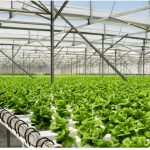Global Lab Automation Market
As stated in our extensive report; the Global Lab Automation Market accounted for USD 5.3 Billion in 2022 and is projected to reach a value of USD 8.97 Billion by 2030.
The global Lab Automation market has grown significantly in recent years due to the increasing need for laboratory automation to enhance accuracy, efficiency, and productivity. Lab Automation refers to using advanced technology to automate laboratory processes, reducing the need for manual intervention and minimizing human errors. Several factors, including the growing demand for high-throughput screening in drug discovery and research, increased efficiency in clinical diagnostics, and the rising adoption of automation in biobanks and biorepositories, drive the Lab Automation market. Moreover, robotics and artificial intelligence advancements have further propelled the market growth.
Click To Get a Free Sample On the Research Study

Key Factors Influencing Global Lab Automation Market Growth
The growth of the global Lab Automation market can be attributable to the following:
- The increasing global burden of chronic diseases such as cancer, diabetes, and cardiovascular disorders has fueled the demand for diagnostic tests and drug discovery. Lab Automation systems help improve the speed and accuracy of testing, leading to early detection and personalized treatment.
- There is a growing need for laboratories to handle large volumes of samples with higher precision and accuracy. Lab Automation systems enable high-throughput screening and reduce human errors, enhancing the overall efficiency of the laboratory.
- Continuous advancements in robotics, artificial intelligence, and machine learning have revolutionized Lab Automation. These technologies have enabled the development of innovative automated systems that can handle complex tasks and improve laboratory workflows.
- Lab Automation systems help reduce manual labor and the time required for sample processing and analysis. This results in cost savings for laboratories, as it eliminates the need for additional staff and reduces the turnaround time for tests.
- Personalized medicine, which tailors treatment based on an individual’s genetic profile, is gaining prominence. Lab Automation systems facilitate the analysis of large volumes of genetic data, enabling personalized diagnosis and treatment options.
- Many governments have increased their investments in research and development activities, especially in the healthcare sector. This has created opportunities for the Lab Automation market as researchers and laboratories seek advanced technologies for their projects.
- The pharmaceutical industry constantly seeks ways to stimulate and streamline the drug discovery and development process. Lab Automation systems play a crucial role by enabling high-throughput screening and data analysis and reducing the need for manual interventions.
- There is a growing trend towards decentralized testing, where lab tests can be performed at the point of care, such as hospitals, clinics, and ambulatory care settings. Lab Automation systems enable rapid and accurate testing at the point of care, boosting patient outcomes and reducing healthcare costs.
North America to hold the Highest Market Share
Geographically, North America dominates the Lab Automation market because of its well-established healthcare infrastructure, advanced research facilities, and the presence of significant market players. The region is witnessing increased adoption of laboratory automation to enhance research productivity and optimize laboratory processes. Moreover, the rise in the geriatric population base and the incidence of chronic disorders in the region has further driven the demand for Lab Automation in clinical diagnostics.
Conclusion
In conclusion, the Lab Automation market is experiencing significant expansion owing to the increasing need for accuracy and efficiency in laboratory processes. With advancements in technology and the rising focus on personalized medicine, the market is expected to grow further in the coming years.
Some of the key players in the Global Lab Automation Market include F. Hoffmann-La Roche Ltd. (Switzerland), QIAGEN (Germany), PerkinElmer Inc. (U.S.), Thermo Fisher Scientific Inc. (U.S.), Siemens Healthcare GmbH (Germany), Danaher Corporation (U.S.), Agilent Technologies Inc. (U.S.), Eppendorf SE (Germany) and others.
![[Market Research Reports] – Research Google News Blog | VMR.Biz](https://www.vmr.biz/wp-content/uploads/2022/12/logo-removebg-preview.png)











